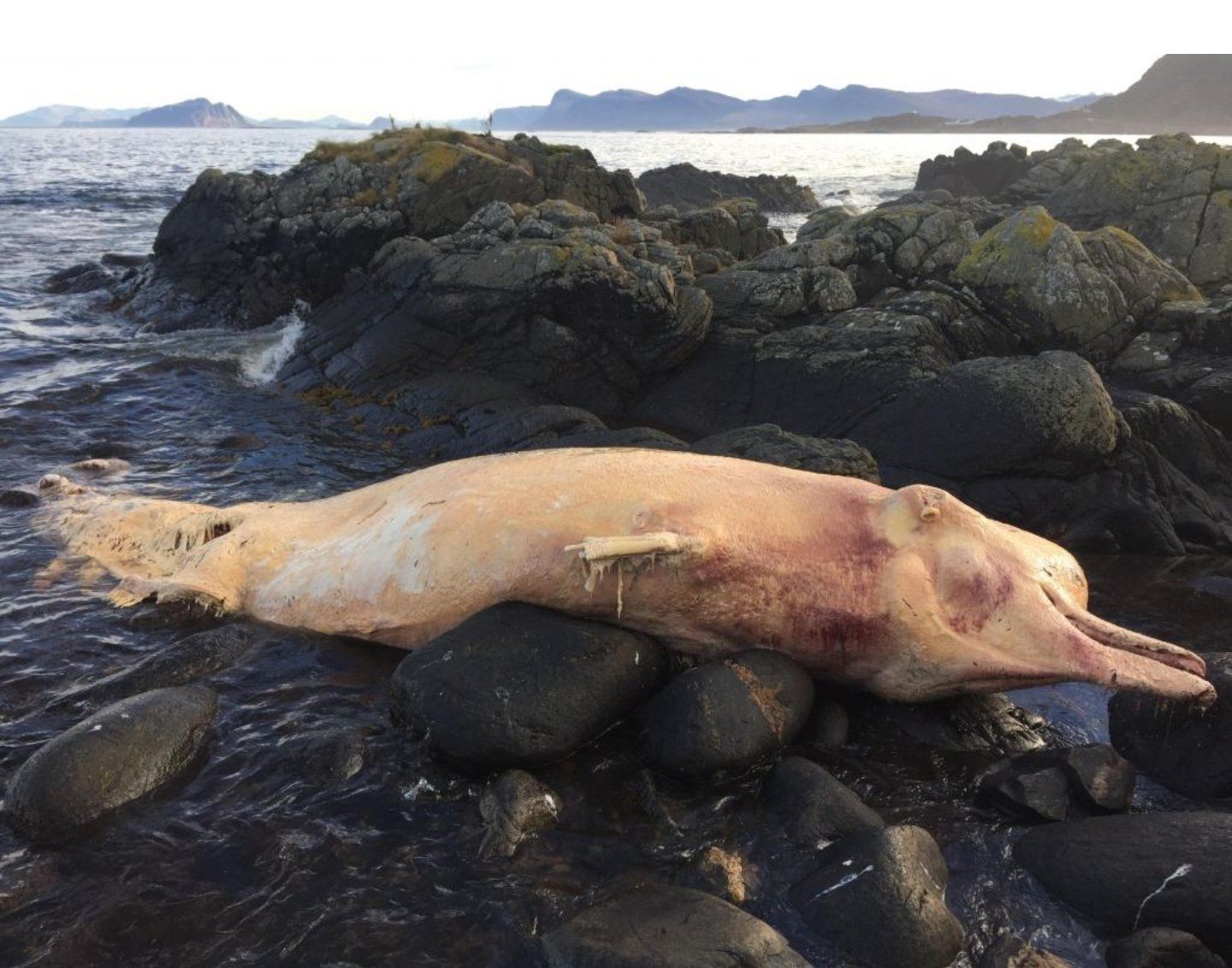Underwater war games may be the cause of last years unusual mortality event (UME) of deep diving whales.
War games between Nato and Russian submarines in the north-east Atlantic coincided with a record number of strandings of deep diving cetacean species in what has been described as a "new Cold War" in August 2018.
Investigations into the "unprecedented" deaths of Cuvier's beaked whales ( Ziphius cavirostris
) by the Scottish Marine Animal Stranding
Scheme (SMASS) has ruled out the possibility of an alternative theory; that disease or a virus might have caused the mass strandings on Scottish and Irish shores. Marine researchers have described this mass stranding as the "largest mortality event of this species anywhere, ever". From late September to the end of August 66 whales, mostly Cuvier's, stranded on the west coast of Scotland on beaches and coastlines from Orkney to Kintyre. The last animal to be reported was on November 6th, when a northern bottlenose whale ( Hyperoodon ampullatus)
was found on a beach in Lewis in Scotland. Northern bottlenose whale's were also found stranded on the shores of Norway and Iceland. More beaked whales were found on northern Irish shores, bringing the total death toll to 90 animals.
All the whales were at various stages of decomposition and many were too decayed for necropsy to discover why they have died. Nick Davison, strandings coordinator at SMASS said; "the tissue tests on 26 animals has revealed they did not die from a virus"- ruling out a natural cause of mortality. The researchers looked carefully for evidence of morbillivirus, which is associated with masels in humans, distemper in dogs and previously caused mass mortality of seals. Now genetic tests are being conducted to determine whether or not the animals are from the same group which would add weight to the event happening in one geographic location. Mariel Ten Doeschate, a data analyst with SMASS said "sonar signals from submarines or seismic surveys could be contributing factors".
Sonar and seismic waves can startle deep diving cetaceans causing them to surface too quickly, leading to symptoms similar to decompression sickness, or "the bends". In May 2018, the U.K Defence Secretary, Gavin Williamson confirmed that Russian submarine activity had increased tenfold in the North Atlantic. For example, in 2010, a Royal Navy ship was called on just once to respond to Russian Navy vessels, but in 2018 they were called 33 times. A number of dead northern bottlenose whales which were found on the east coast of Iceland may also be connected to the same event.
As other deep diving cetaceans, northern bottlenose whales may be sensitive to the effect of man made noise in the marine environment. Similar to Cuvier's beaked whales, these species feed at great depths, mainly on squid and rely heavily on their sonar and echolocation capabilities to navigate and hunt. As a result they are highly susceptible to loud underwater sounds such as military sonar, although currently there is no evidence that sonar was the cause of these deaths. In 2011, 19 long-finned pilot whales ( Globicephala melas ) stranded on the north coast of Scotland and later investigations concluded that four large underwater bombs has been detonated by the Royal Navy. Both the U.K and Scottish governments have ordered investigations into the mass strandings of deep diving whales.
Read more here: https://www.orcireland.ie/more-strandings-of-deep-diving-cetaceans-in-scotland-iceland-and-norway.
SHARE THIS ARTICLE















